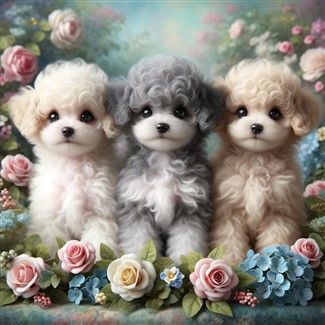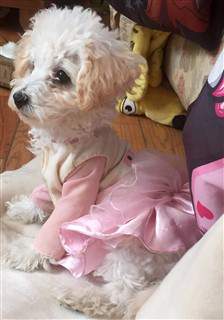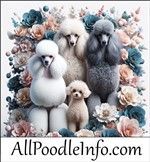Toy Poodle Stats & Information

Stat Information
Appearance

Colors
Care Information
Temperament
Health Issues
Related Article:
Comparison of Toy Poodle vs Miniature vs Standard Poodle: A helpful summary comparing the 3 sizes of Poodles (AKC recognized) including temperament and health. And a summary of what the three sizes have in common.
Helpful Articles:
Poodle Feeding Guidelines: This extensive article covers all important aspects including scheduling, wet vs dry, grain vs grain-free, homemade food vs kibble, meals, snacks and treats, and more. This is for Poodles of all sizes and ages.
The Best Toys for a Poodle: From chew toys for rambunctious teething puppies to toys to help Poodles with separation anxiety, we have an great list for Poodles of all sizes and ages.
Poodle Car Sickness: If your Poodle has trouble being comfortable in the car or you're not sure of the safest way to transport your Poodle, this article is for you. This covers both car sickness, along with treatments, and the best car seats and seatbelt restraints.
